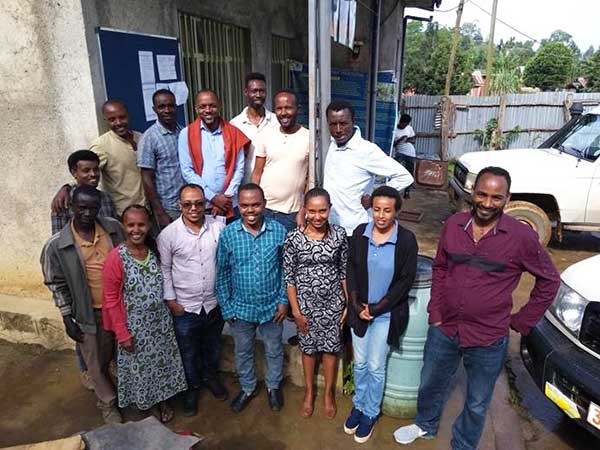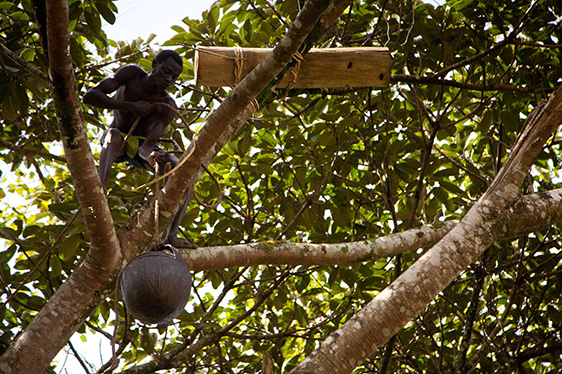Over the last two years the Chartered Association of Business Schools (CABS) has reviewed the work by UK Business Schools in teaching, research and engagement. It has selected the research and project implementation of Huddersfield Business School's research in Ethiopia to be one of 24 case studies to be shared across the sector. Huddersfield Business School's experience was seen as an example of engagement, recognising the outward facing work Business Schools do to engage with society, policy makers and real-world problems.
Working with communities in Ethiopia
Huddersfield Business School's continued work with Ethiopia is the result of a combination of working with a local partner civil society organisation, Ethio-Wetlands and Natural Resources Association (EWNRA). The School helped set up the organisation in 2000 and it now has an annual turnover of £2 million with 200 members of staff employed. Huddersfield Business School has supported the Ethiopian field staff by building a Huddersfield team with expertise in gender, enterprise, environmental management and policy making, with cross school engagement in law and remote sensing.
Together, the School has helped create seven new cooperatives which trade mainly in forest coffee and honey which are exported to a variety of European buyers. In addition, 12 new micro-enterprises have been supported to provide new trading opportunities in other forest products and to enhance the position of women in the local society. This forest protection work along with the Ethiopian partner has brought 450,000 hectares of tropical montane rainforest under community management and has reduced the rate of forest lost to less than one tenth of what it was before. This has resulted in major carbon savings, estimated to be 2.7 million tons of carbon dioxide a year which is equivalent to the annual emissions of 280,000 people in the UK.
Collaborative working
The work in Ethiopia has required funding of over £6 million which has been provided by several UK and international donors, while a range of collaborative links have been established with international non-governmental organisations, Ethiopian and donor agencies and several Ethiopian and European Universities. There have been three Research Excellence Framework (REF) impact cases studies produced from the work in Ethiopia, one in 2014 and a further two in 2021, as well as five journal articles published since 2018.
Professor Adrian Wood, commented, "This work is an example of how academics can undertake action research with communities, the findings of which can be immediately applied to improve the livelihoods and welfare of some of the poorest people in the Global South. It is part of our responsibility as researchers."
This international profile demonstrates the commitment the team at Huddersfield Business School has to the School's vision of enriching lives, enhancing organisations and engaging communities, and is an example of the University's outward facing orientation for addressing the challenges faced with climate change.








